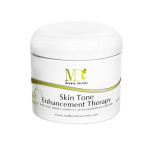What is hyperpigmentation?
Pigmentation is the coloring of a person’s skin. Hyperpigmentation is the darkening of the skin, and looks like dark spots, patches or blotches on the skin. Such dark spots, patches or blotches can appear anywhere on the body, but more commonly on the face and neck. The condition is usually harmless but it’s the appearance factor that could be great and aesthetically unpleasing. Each case varies.
What causes hyperpigmentation?
Melanin is the main determinant of skin color in humans. Hyperpigmentation is the direct cause of an increase in melanin. A greater production of melanin can be due to many factors—such as hormonal changes (pregnancy and Addison’s disease), sun damage, skin injuries, aging, inflammation, acne, certain diseases and medications (antibiotics, antiarrhythmic, and antimalarial medications), and even smoking.
Hormonal Change and Pregnancy:
Melasma, also know as chloasma spots or the mask of pregnancy, is a form of hyperpigmentation that occurs as a result of hormonal changes. Pregnancy can cause such hormonal changes, which can result in the overproduction of melanin that then causes hyperpigmentation. This “mask of pregnancy” usually occurs during the third trimester and goes away or fades after childbirth. It is harmless but can generate emotional distress since it concerns a person’s cosmetic appearance. Melasma, although predominant in women, can occur in men as well. Oral contraceptive and hormonal replacement therapy can also trigger melasma.
Aging and Sun Exposure:
Liver spots, also known as age spots, are a common type of hyperpigmentation. Although, they are called liver spots, they have nothing to do with your liver. Its name derives from previous misconceptions that the spots were caused by liver problems. Liver spots are common in people over 40 years of age, especially those who spend frequent time in the sun. As we age our skin is unable to regenerate as quickly from sun exposure or other forms of ultraviolet light. Liver spots are benign, however, can obfuscate the detection of skin cancer.
People of darker skin tones are more prone to hyperpigmentation. Asians, Middle Easterners, Mediterranean and Africans are types of persons more susceptible to hyperpigmentation because they already possess more melanin than Caucasians.
MD Beauty Secrets’ Hyperpigmentation Solutions:
 Hydroquinone
Hydroquinone
Learn More About Hydroquinone
Note:
Under our physician’s supervision, we allow hydroquinone to be used with other actives, such as retinol, glycolic acid, or salicylic acid.

